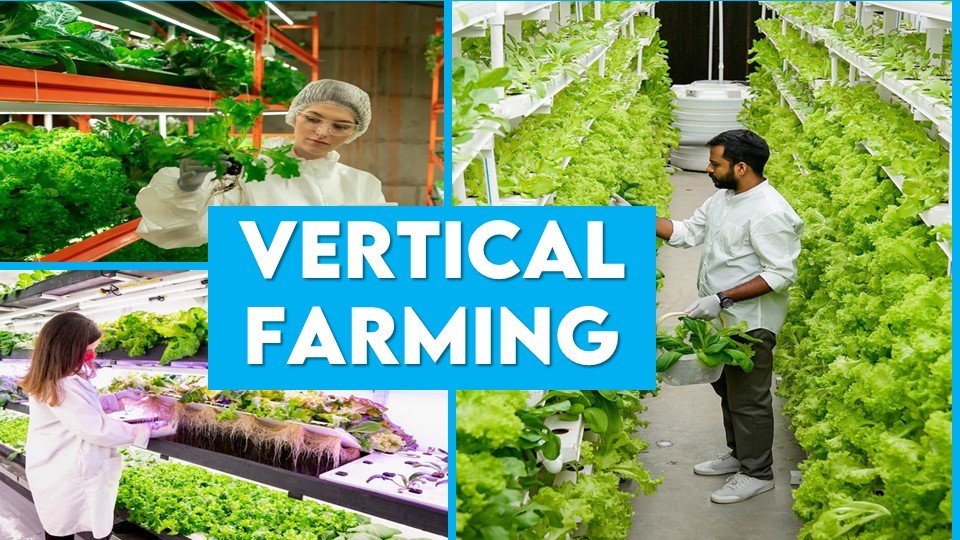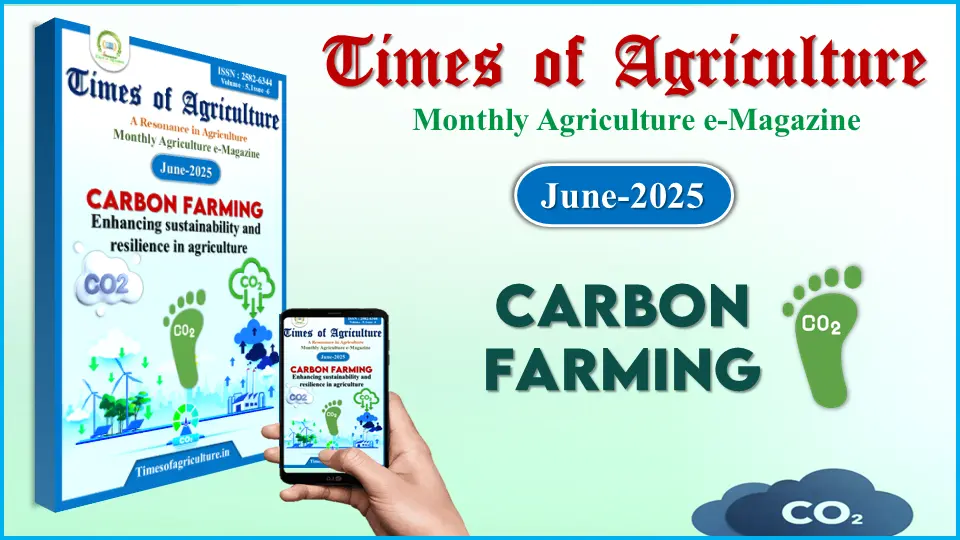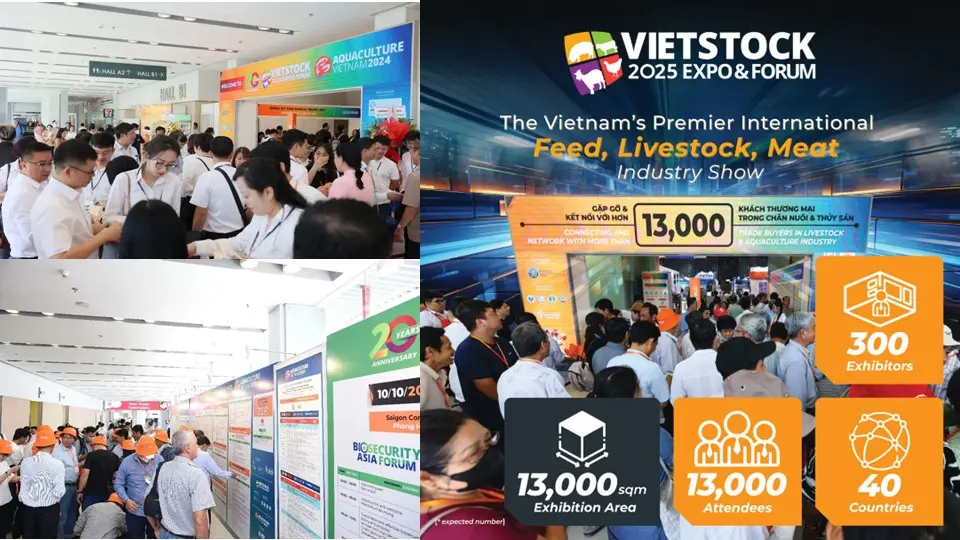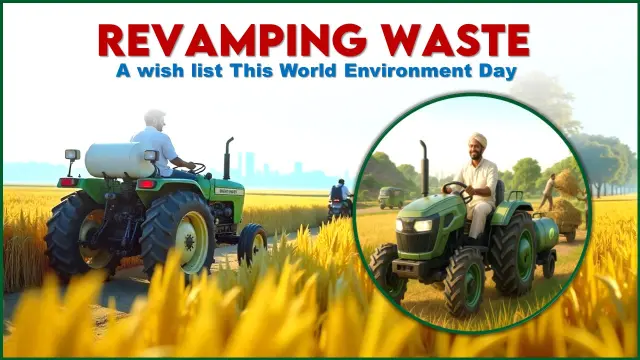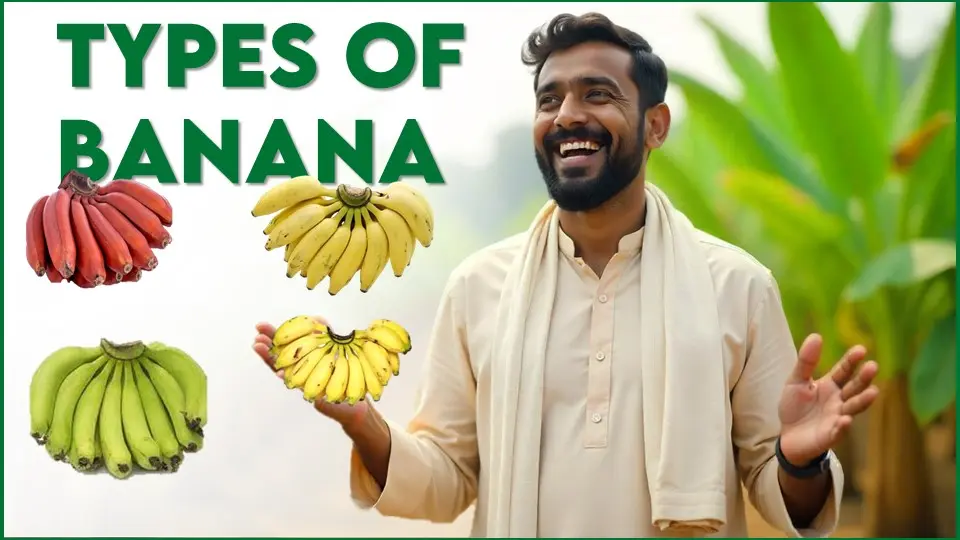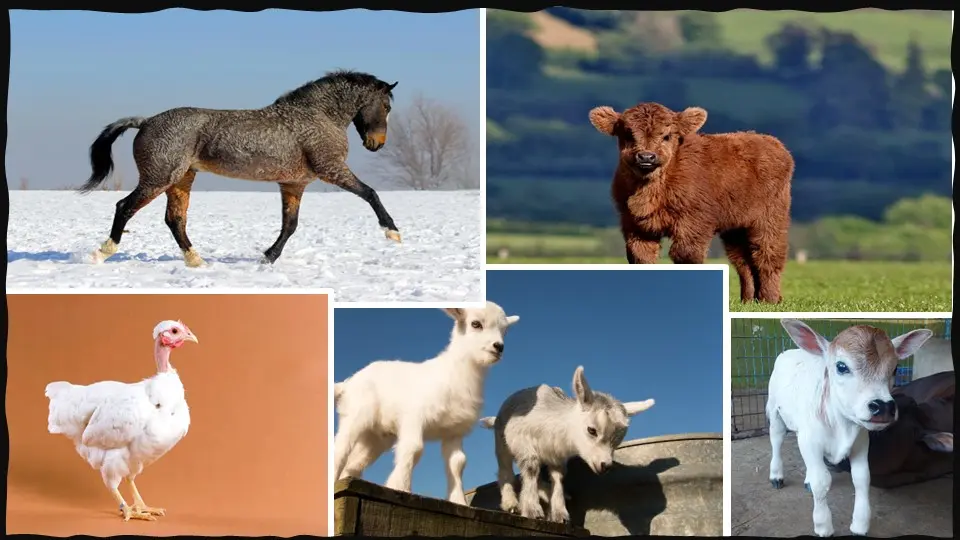India became the world’s most populous country with nearly 140 crore people. On one hand, this would mean higher demographic dividends which is advantageous for the economy while on the other hand, the problem of resource scarcity looms large especially food security. Mitigating this is an arduous task since there is no scope for an increase in the cultivable area. So the only solution is to maximize the productivity in the available area.
This is where Vertical farming is becomes important. Vertical farming is an ingenious solution to food security concerns. It is one of the best ways to maximize production in small areas making vertical farming in India a profitable venture. In this article, we will be describing vertical farming in India, vertical farming investment costs in India, crops suitable for vertical farming in India, and the top vertical farming companies in India.
Vertical Farming in India
Vertical farming is a highly profitable method involving the production of plants in vertically stacked structures to maximize land utilization. Vertical farming in India is done inside structures like greenhouses, warehouses, rooftops, etc.
Contrary to conventional practice, it can be done in seemingly uncultivable areas. Vertical farming technology in India requires the integration of modern technologies like hydroponics, aeroponics, etc. for their successful implementation.
Advantages of Vertical Farming in India
Although capital-intensive vertical farming in India is a rewarding idea that has enormous benefits like
- Space utilization: by growing crops vertically rather than horizontally, less area is required for a multitude of crops.
- High yield: Vertical farming in India ensures high yield year-round, destroying seasonal barriers.
- Resource conservation: unlike traditional practice, vertical farming technology in India utilizes less water and fertilizers due to efficient absorption.
- Free from chemical pesticides: due to cultivation in controlled environments, the crops are free of pest attacks, annulling the need for chemical pesticides.
From these benefits, it is evident that despite their structural and financial requirements, vertical farming in India encompasses attractive benefits. That brings us to an important question:- what is the vertical farming setup cost in India?
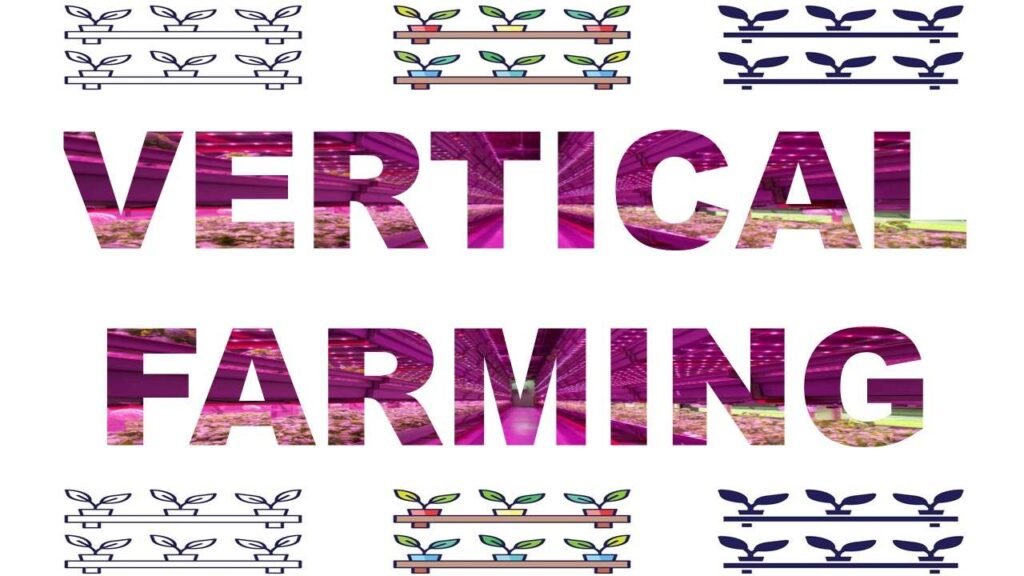
Read More:
Cost of Vertical Farming in India
Vertical farming setup cost in India or the vertical farming investment cost in India may seem substantially high but is outweighed by the equally high returns it helps in churning out. Vertical farming cost in India hinges on several factors like
- Location
- Area undertaken for the project
- Size of operation
- Choice of technology
- Level of automation
The cost of vertical farming in India is directly proportional to the above factors. However, a rough estimate is as follows
- Infrastructure cost: this constitutes all the structural requirements for the project like building construction, growing racks, climate monitoring systems, and irrigation systems. The cost comes to around ₹10,00,000 to ₹1 crore.
- Technology and equipment cost: vertical farming in India requires modern technologies like hydroponics, aeroponics, cooling systems, fertigation equipment, automation equipment, etc. It costs about ₹5 lakhs to ₹50 lakhs based on the requirement.
- Operational cost: this is the cost of running the establishment and is an important part of vertical farming cost in India. These include the cost of labor, electricity, water, nutrient solutions, seeds and seedlings, etc. It comes to around ₹2 lakhs to ₹5 lakhs per year.
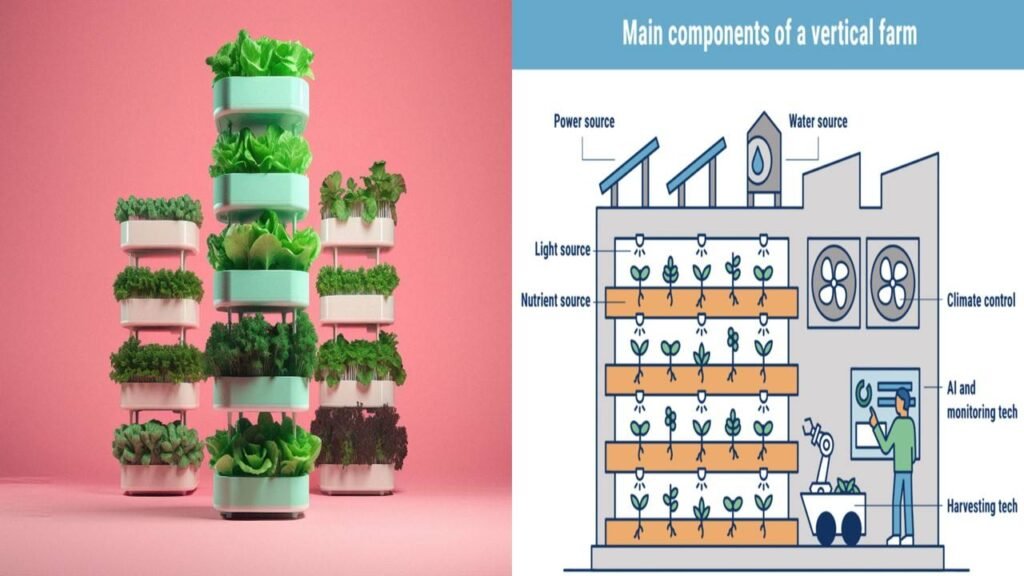
Vertical Farming Cost in India
| Sr. No. | Particular | Cost in rupees |
| 1 | Infrastructure | ₹10 lakh to ₹1 crore |
| 2 | Technology and equipment | ₹5 lakhs to ₹50 lakhs |
| 3 | Operational cost | ₹2 lakhs to ₹5 lakhs per year. |
Evidently, the capital required as well as the operational cost are incredibly high but there is no doubt that vertical farming will be lucrative in the long run.
Now that we are done with the cost of vertical farming, let us look at the crops suitable for vertical farming.
Crops Suitable for Vertical Farming
Several factors need to be considered before choosing the crop for vertical farming in India such as climatic conditions, market demand, feasibility, and much more. Several crops are suitable for vertical farming but some are not. Let’s explore the best crops suitable for vertical farming in India.
Vertical Farming of Turmeric in India
Turmeric is a popular crop among Indian farmers due to the scope of value addition by which numerous products can be produced. These products are used in diverse industries ranging from cosmetics to medicine. But is vertical farming of turmeric in India a good idea? Well yes, it is and is a fruitful business.
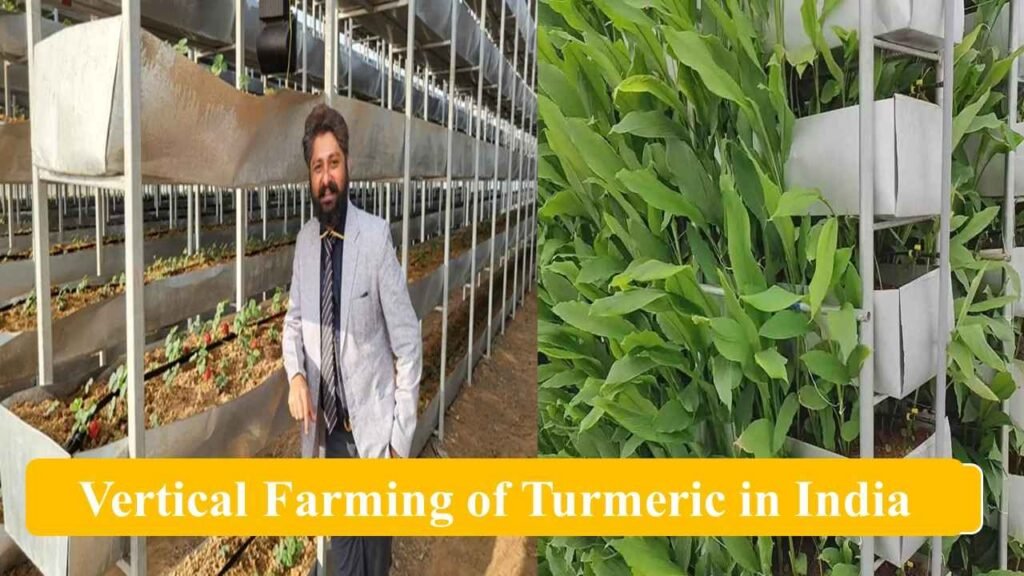
Turmeric can be profitably grown by incorporating the technic of hydroponics and by using soilless media. Alternatively, perlite or coco peat can be used as media. This is also beneficial since it prevents the attack of soil-born pathogens and nematodes that are a great threat to yield. Also, the plant has a short stature with medium-sized leaves which is suitable for vertical farming in India.
Vertical Strawberry Farming in India
Strawberries are a highly sought-after fruit in India as well as around the world. Currently, due to climatic constraints, this high-value crop is confined to a few areas in India. However, due to environmental and climate monitoring technologies like greenhouse farming, the production scale has overcome the climatic barriers. This has served as an incentive for the higher acceptance of vertical strawberry farming in India.
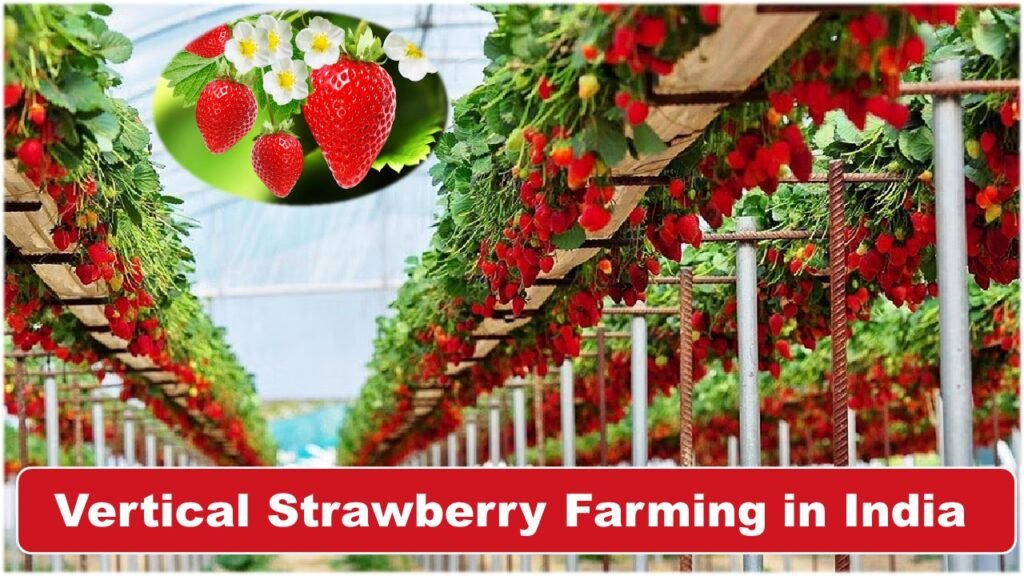
The crop’s characteristic compact size and low vertical growth height are suitable for growth in vertically stacked layers. Further, they can be grown in soilless media by using hydroponics which leads to higher nutritional efficiency. It also eliminates the need for chemical pesticides and herbicides, supporting sustainability in agriculture. Vertical farming in India of fruit crops such as Strawberries aids in closing the demand-supply gap and also in ensuring high-quality produce suitable for export.
Vertical Farming of Leafy Greens in India
Leafy greens constitute a range of high-demand crops such as spinach, lettuce, kale, etc. which are constrained by climatic conditions in their production area. But these are well suited for vertical farming in India. Vertical farming also helps in overcoming the seasonality barrier of these crops and ensures year-round production.
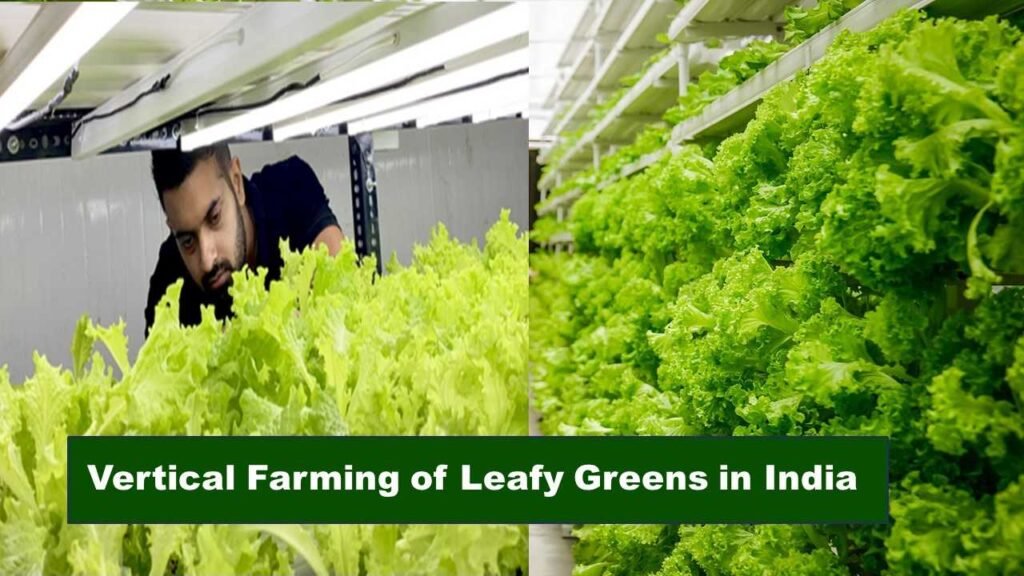
These crops have a relatively short growth cycle and can thrive in closely monitored conditions having moderate temperatures and high humidity. In addition to this, they also require well-drained nutritious soil, proper irrigation, and light exposure. Proper maintenance can result in high yields which can reap profits. Through vertical farming, farmers can cash in on the market demand and high market value of these crops.
Vertical Farming of Herbs in India
Herbs constitute plants that have short stature and green stems. Plants such as mint, basil, parsley, etc. come under this category. With their short stature and higher adaptability to a multitude of environmental conditions, they are perfectly suitable for vertical farming in India. Although not all crops are of high value, some of them are highly profitable. They are in constant demand in the culinary industry and medicinal industry, especially Ayurveda.
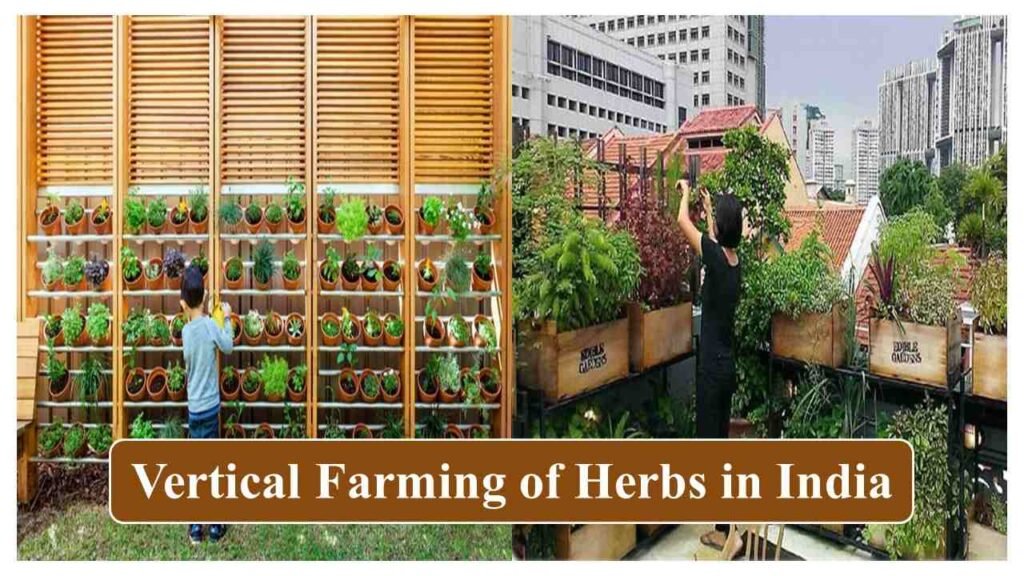
For vertical farming in India, herbs require optimal temperature and moisture conditions. They can be grown in soil-based systems or can be grown in soilless media using hydroponics making their maintenance relatively lenient as compared to other crops. Vertical farming is an efficient way to produce herbs efficiently and sustainably.
Vertical Farming of Microgreens in India
Microgreens refer to young vegetable plants that are harvested at an early stage with one or two sets of true leaves. They are of miniature sizes ranging from 1 to 3 inches. Irrespective of their size, they are nutritional wonders harboring a high following in the vegetarian world. They are becoming popular in the kitchen due to their intense flavors.
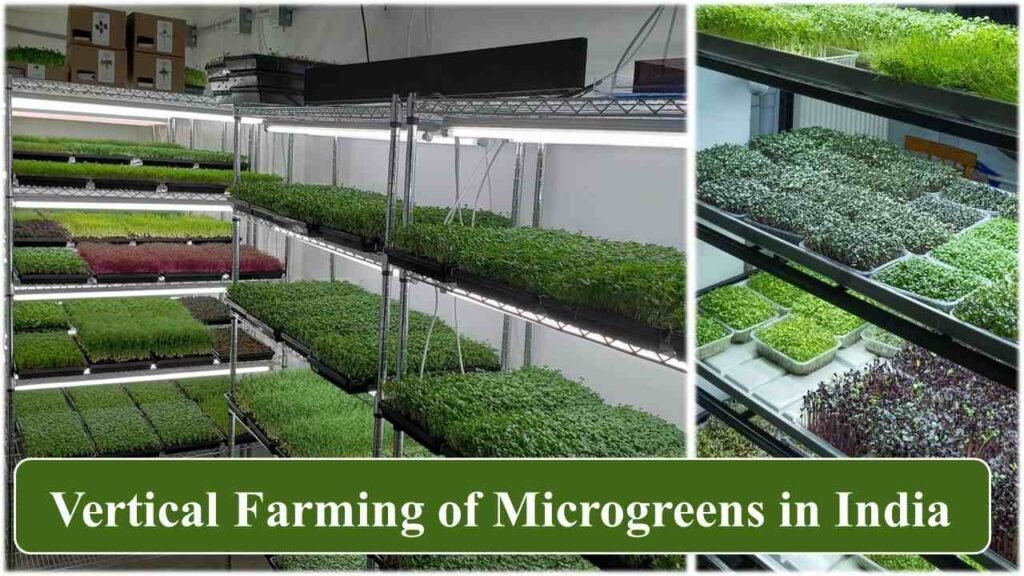
Their miniature size and rapid growth cycle make them apt for vertical farming. They require high humidity, optimum light exposure, and a balanced nutrient supply for best growth. One of their greatest advantages in vertical farming is their high-density planting enabling efficient space utilization. With exponentially increasing demands, especially in urban areas, vertical farming of microgreens in India is becoming one of the most profitable agribusiness ideas in India.
It is evident from the above discussion that, for selecting the right crop, one should always consider factors like climatic conditions, market demand, growth habits, etc. to arrive at the best choice.
But one interesting aspect of vertical farming is that it is not just limited to plants. Vertical farming can also be applied in the case of crabs! That’s right, the benefits of vertical farming can be applied to aquaculture as well.
Read More:
Vertical Crab Farming in India
Crab farming, similar to prawn farming and other aquaculture practices, is profitable due to its demand. However conventional methods of crab farming are challenging as it requires vast areas. Vertical farming has provided a solution to this problem. Using vertical farming, crab farming can be done in less area, increasing productivity.
Vertical crab farming in India is done by rearing crabs in specially constructed vertical structures in which crabs are grown in each layer. This increases the rate of crabs per area. This method improves the efficiency of water purification increasing the water quality which helps in preventing diseases and infections. It also reduces feed wastage and water pollution.
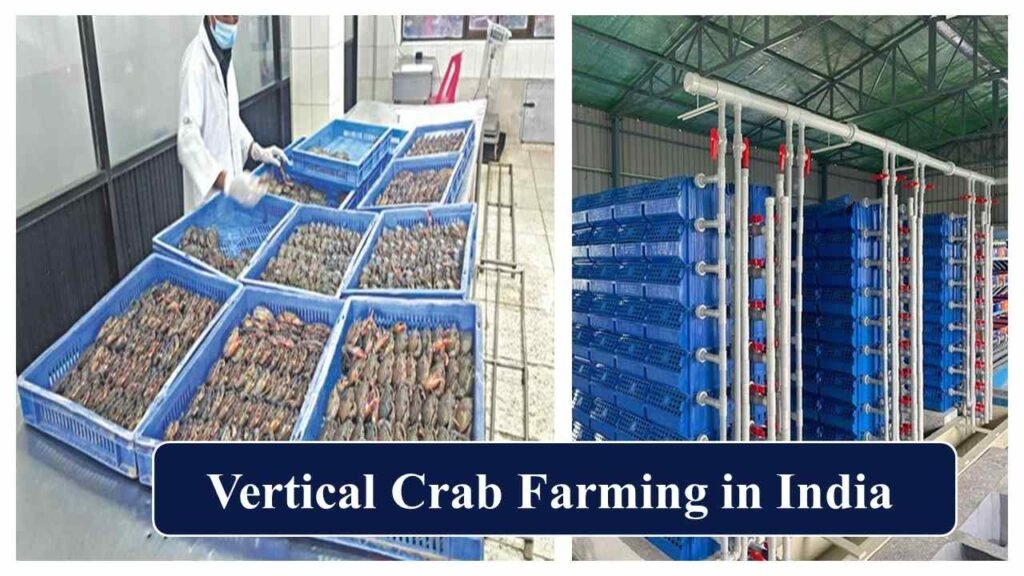
So far we have seen different aspects of vertical farming in India along with some of the crops suitable for vertical farming. But has vertical farming made an impact on India’s agricultural economy? To know about that we can look into some of the startups that have successfully employed vertical farming to churn out huge profits.
Top 5 Vertical Farming Companies in India
In India, several companies have established themselves as pioneers of vertical farming technology by paving the way forward and by helping other companies to mimic their model and establish themselves. These companies were visionaries in the field and employed cutting-edge technologies to drive the industry forward. Here are the top 5 vertical farming companies in India in no particular order.
1-UrbanKissan
Known for its incomparable hydroponics and aeroponics systems that ensure year-round production, UrbanKissan is an important vertical farming company in India. The company focuses mainly on growing leafy greens, herbs, and microgreens in soil-less media by minimizing water usage. They also focus on maximizing cultivation in Urban areas where high demands exist.
They possess no reluctance to adopt the latest technologies in their methods. The main focus is given to precision farming using advanced automation and precision farming.
These methods have resulted in highly profitable, sustainable, and healthy produce. The company’s commitment to sustainability and environmental regeneration has made it an important part of India’s urban agricultural sector.
2- Future Farms
Future Farms is a revolutionary in vertical farming in India. They specialize in maximizing resource efficiency and crop productivity by operating in controlled environments. They also concentrate on developing vertical farming equipment suitable for specific crops based on the crop requirements. Hence they help in the cultivation of a wide range of fruits and vegetables.
Future Farms emphasizes the use of advanced technologies like automated climate control, LED lighting technology, and fertigation systems that allow them to produce healthy fruits and vegetables year-round. There is no doubt that Future Farms is a leading name in vertical farming in India.
3- Triton Foodworks
Another important name in the domain of vertical farming in India. Triton Foodworks has participated in the modern agricultural revolution by concentrating on sustainability and chemical-free healthy agricultural produce. The company’s advanced vertical farming technologies are suitable for the production of a wide range of crops. They stride through the path of precision farming by utilizing minimal resources and increasing the efficiency of uptake.
The company consistently delivers locally sourced, healthy, and nutritious produce to consumers while significantly reducing transportation-related carbon emissions. Triton Farms is one of the top vertical farming companies in India due to its commitment to increasing food security and sustainability.
4- Letcetra Agritech
Letcetra is a pioneer in vertical farming in India. They have succeeded in integrating cutting-edge agricultural practices with sustainable food production. The company focuses mainly on vertical farming in India using hydroponics and aeroponics, to produce healthy organic produce to be supplied in urban areas. Letcetra’s vertical farming solutions are designed to optimize space utilization and resource efficiency.
The company also emphasizes sustainable agricultural practices, evident in its precision farming systems and climatic monitoring technologies. Regarding vertical farming in India, Letcetra Agritech is a key player in the field.
5- Agricool India
Agricool India is a giant in India’s vertical farming sector. They rely on container farming technology to produce high-quality fruits and vegetables. Similar to the other important companies discussed before, they integrate vertical farming methods with sustainability. This results in tasty, nutritious products which are perfectly safe.
This company has a direct-to-consumer model which is proof of its commitment to promoting food safety. This allows consumers to access safe produce without the involvement of middlemen who may ruin the products by adulteration. Agricool India’s focus on innovation and its dedication to redefining the future of food production in India make it an influential player in vertical farming in India.
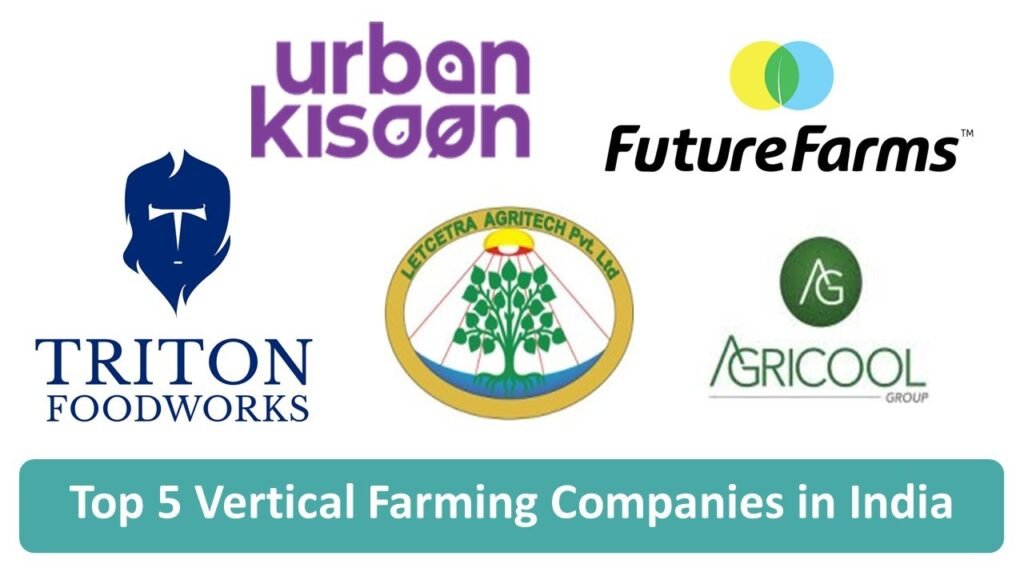
Numerous vertical farming companies form the pillars of vertical farming in India but we have only listed a few. However, it should be clear that these companies have played an important role in popularising vertical farming in India.
| Sl. No. | Company | Founded Year | Founder | Headquarters |
| 1 | UrbanKissan | 2017 | Sairam Reddy, Srinivas Chaganti, Vihari Kanukollu | Hyderabad |
| 2 | Future Farms | 2014 | Sriram Gopal | Chennai |
| 3 | Triton Foodworks | 2015 | Deepak Kukreja, Dhruv Khanna, Rachit Sethia, Ullas Samrat | Delhi |
| 4 | Letcetra Agritech | 2016 | Ajay Naik | Goa |
| 5 | Agricool India | 2016 | Anand Kumar | Delhi |
Read More:
Conclusion
Throughout the length of this article, we have looked at vertical farming in India and various factors about this topic like vertical farming investment cost in India, crops suitable for vertical farming in India, vertical farming technology in India, and also the top vertical farming companies in India. Despite its high investment costs, vertical farming is a highly profitable venture in the long run. It promises fresh, healthy, chemical-free, healthy produce throughout the year without any seasonal constraints. Although the market mainly focuses on urban areas, the prospects are huge.
One thing that is important to notice is that vertical farming is a sustainable agriculture practice. By eliminating the use of chemical substances and integrating technologies like hydroponics, aeroponics, and climate resilience, vertical farming in India not only contributes to sustainability but also to better resource utilization and pollution prevention. It also contributes to minimizing carbon footprint. As sustainability and efficient resource utilization are pressing concerns of the present, vertical farming seems like an attractive solution. It is indeed a method of the future.
Latest Post
- June Issue (2025) – Times of Agriculture Magazine
- How to Create Modern Commercial Greenhouse Agriculture
- REACH NEW HEIGHTS WITH YOUR BUSINESS AT VIETSTOCK EXPO & FORUM 2025
- Revamping Waste: A wish list This World Environment Day
- Types of Banana in India : Health & wallet friendly fruit
- May Issue (2025): Times of Agriculture
- How to Grow Oyster Mushrooms at Home in India
- Top 10 Profitable Fruit Farming in India
- 5 Unique Hobby Farm Animals You Should Consider Domesticating

